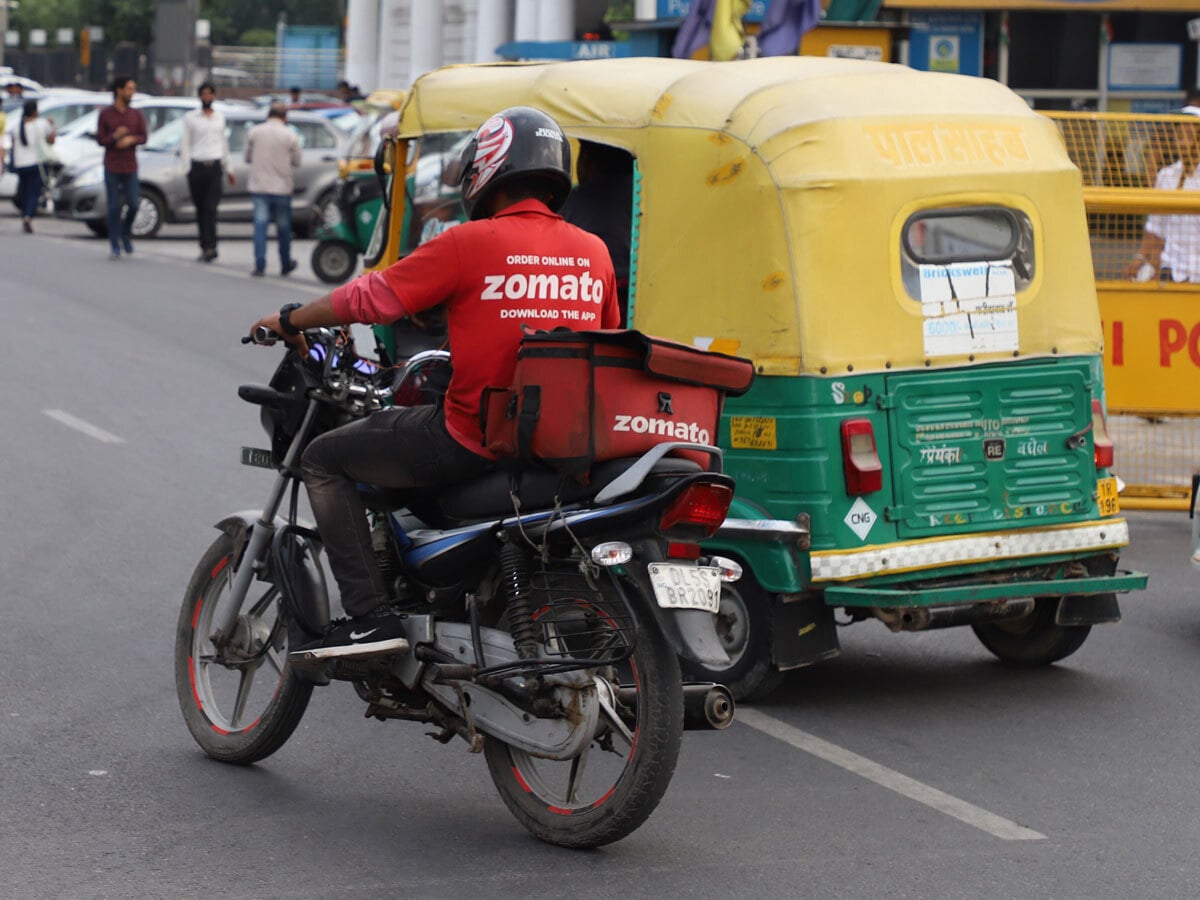India’s ever-evolving digital infrastructure is revolutionising access to finance through mobile payments, benefiting Paytm owner One97 Communications. As more young people come online and use smartphones to buy goods and services, the country’s ecommerce sector may see a boom.
- India’s digital strategy includes cashless financial inclusion, driving demand for mobile payments platforms like Paytm.
- EY research suggests India could be home to 600 million online shoppers by 2030.
- EMQQ’s India Internet & Ecommerce ETF is up 4% in the past month.
Shares in Infosys [INFY.NS] have tumbled more than 11.3% since it posted fourth quarter (Q4) results on 13 April, which revealed that India’s IT services giant had missed profit estimates. The company also warned that customers in sectors including finance were pulling back as they tightened their belts amid the economic slowdown.
Nevertheless, the company signed deals totalling $2.1bn in the quarter and $9.8bn across the full fiscal year. Winning large deals is becoming critically important in the near-term, as some clients cut their spend and others look to consolidate. The current environment has also created an opportunity, as customers shift their focus to cost-optimisation deals, according to Infosys CEO and managing director Salil Parekh.
“As the environment has changed, we see strong interest from our clients for efficiency, cost and consolidation opportunities, resulting in a strong large deal pipeline. We have expanded our internal program on efficiency and cost to build a path to higher margins in the medium term,” said Parekh in a press release.
India’s big digital ambitions
IT services, software and telecom services providers are critical to India’s digital ambitions.
Launched in 2015, Digital India is Prime Minister Narendra Modi’s plan to boost the country’s internet connectivity and digital infrastructure, and to promote digital inclusion.
According to research by EY published in February, “India has leveraged the internet to create a plethora of digital public goods and government services”. This has enabled it to provide “a more democratic and an inclusive digital network and infrastructure”.
Infosys co-founder Nandan Nilekani has played a key role in laying the foundations on which the country’s digital infrastructure has been built. Nilekani is also the founding chairman of the Unique Identification Authority of India, which developed Aadhaar, a voluntary biometric programme that issues 12-digit, unique identity numbers to Indian residents, expediting access to bank accounts and other services.
One of the main objectives of Digital India is to make transactions cashless and paperless, which has increased demand for mobile payments, potentially benefitting companies including One97 Communications [PAYTM.NS]. The Paytm owner IPO’d in November 2021 in a bid to capitalise on the pandemic-induced mobile payments boom, though its share price has slumped 70% since then.
Digital infrastructure will power ecommerce growth
Aside from facilitating mobile payments, India’s digital infrastructure has made it easier for businesses to sell goods and provide services. This has enabled the emergence of a number of ecommerce players.
Food delivery firm Zomato [ZOMATO.NS] listed in July 2021, as demand for online groceries and takeaways soared while people were locked down. Its share price has slid 28.8% since then.
Despite investors seeming to have fallen out of love with pandemic darlings, the long-term growth prospects for the likes of One97 Communications and Zomato should be positive, especially as more tech-savvy young people come online.
As the EY research points out, the average Gen Z internet user in India spends eight hours a day online and, with smartphone adoption rapidly increasing in rural parts of India, the country could have 500 to 600 million online shoppers by 2030. If it maintains its current pace of growth, India’s ecommerce industry should be worth $350bn by then.
Kevin Carter, the founder and chief investment officer of EMQQ, is ebullient on the India growth story. Echoing the EY research, on an upcoming episode of the Opto Sessions podcast, Carter argues that the millions of young people who’ll get their first smartphone or PC in the coming years are set to create many new opportunities.
“What we’ve seen in China for the last decade, I think we'll see the same kind of growth in India for the next decade and a half,” says Carter, adding that “it doesn’t need AI or the metaverse to make it happen.”
Funds in focus: EMQQ India Internet & Ecommerce ETF
As India’s digital landscape and ecommerce sector continue to evolve, more entrants are likely to come onto the scene. It helps that India’s IPO market is fairly healthy, according to Carter, who says he wouldn’t be surprised if some Indian internet companies listed this year.
“India right now is somewhat insulated from the geopolitical problems in the world, and in some ways might be benefitting from them. I think it’s quite possible that their IPO market domestically could restart even if the global IPO markets are still a little slow,” he tells Opto Sessions.
EMQQ will no doubt be keeping a close eye on any IPO activity. Its India Internet & Ecommerce ETF [INQQ] offers investors exposure to the biggest players in the country's internet and ecommerce sectors. Zomato is its third-biggest holding as of 19 April, with a weighting of 6.88%, while One97 Communications is the fourth-biggest and has a slightly smaller allocation of 6.77%. The fund is down 3.2% year-to-date, though up 4.1% in the past month.
Both Zomato and One97 Communications are held by EMQQ’s Next Frontier Internet & Ecommerce ETF [FMQQ], with respective weightings of 1.25% and 0.55% as of 18 April. Though the fund is heavily weighted in favour of Korea, Brazil and Singapore, Indian companies account for 12.7% of the portfolio.
Infosys has the second-biggest weighting in the VanEck Digital India ETF [DGIN] with a 6.93% weighting. It also holds Zomato and One97 Communications, at respective weightings of 2.10% and 2.34%.
Continue reading for FREE
- Includes free newsletter updates, unsubscribe anytime. Privacy policy





